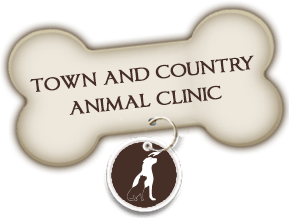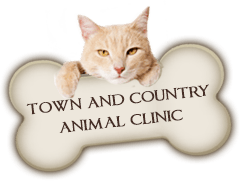It is only natural to become worried when your pet becomes ill or is injured. You must then decide whether he should be taken to your veterinarian immediately because it is an emergency situation, if a call for an appointment is all that is required, or even if it is only minor and temporary and needs no medical attention at all.
The following will hopefully help you in making that decision.
1. Almost any problem involving the eye should be seen right away. Glaucoma, corneal ulcers and foreign bodies beneath the eyelids are common eye diseases where waiting could make the problem worse.
2. Profuse vomiting is another sign that needs immediate attention. Vomiting has many causes. A common reason, though, is an intestinal obstruction since pets love to eat so many weird things! If this occurs, the pet can die in a matter of hours, so an ER trip is warranted.
3. Difficulty breathing is also a problem that should not wait. This symptom again has many causes but almost all need immediate attention. Difficulty breathing may be a severe cough, but more commonly it is exaggerated effort in breating, with pets often using their abdominal muscles to help them breathe. At first people may not notice their pet is having difficulty, but they may note that their pet does not want to lie down.
4. If there is active hemorrhage, the pet needs to be seen by a veterinarian right away. If there is a small wound with just a few drops of blood, it is likely okay to call for an appointment after gently cleaning the wound with warm water yourself.
5. If your pet suddently can’t use its back legs, is dragging its rear legs, or is unable to get up, this is a reason for an emergency trip. This is a common problem, especially in Dachshunds, and emergency surgery may be needed to save the spinal cord. For the best outcome in these cases, time is of the essence.
6. If your pet has its first seizure, it should be examined immediately. Seizures are just a symptom. They have many causes and they should be checked without delay. The pet should be monitored closely for the next several hours as another seizure may occur. If your pet has had seizures before, has been diagnosed with epilepsy, is on medication, and has another seizure, it may not be necessary to visit the ER each time it has a seizure. But if a seizure lasts more than a couple minutes, or if there are clusters of seizures, then a trip to the ER is warranted.
7. If your pet ingests a toxin, it should be taken to the ER as soon as possible. The veterinarian may induce vomiting to try to eliminate some of the toxin, so time is important. There are also acidic toxins that must be neutralized in the stomach rather than being forced up out of the stomach at which time they would only burn the esophagus a second time on their way up. Also, if there is even a possibility the pet has ingested antifreeze (which they find sweet and inviting), it is imprtant to get to the ER immediately. There is a test to determine if they did drink any of the poison, and the antidote needs to be given with a couple hours.
8. If your pet is pregnant and is having difficulty having the babies, it should be seen by the veterinarian immediately. The problem is called a dystocia and an emergency caesarean section may be needed. Veterinarians advise that a puppy or kitten should be born with two hours of the mother starting active labour, and there should be no more than one hour between puppies or kittens. Also, if you see a baby stuck in the birth canal, take them to the ER right away.
There are also instances where your pet should see a veterinarian, but not necessarily as an emergency. These would include:
1. Itchiness is a common problem, but does not usually need immediate care. The pet should be seen soon, though, as it is amazing how fast they can lick or scratch enough to set up an infection in the skin.
2. Reverse sneeze is a common problem, and many dogs are presented at the ER because owners think they’re having an asthma attack. With reverse sneeze, the dog forcefully brings air into its nostrils. It is usually loud and sounds terrible, but veterinarians aren’t too worred about these as long as there is no nasal discharge.
3. Any pet with diarrhea certainly should be examined, but it does not need to be in the emergency setting as long as the pet is bright, alert and eating well.
4. Small wounds can probably wait for an appointment, although dog bite wounds can have small skin openings but have large areas of tissue damage under the skin.
Of course there are many other problems that pets can have. Dogs and cats can get into some very odd predicaments that may require ER attention. If you have any doubt about what to do in any given situation, call us immediately and we will be pleased to offer our advice as to whether or not, and how soon your pet should receive professional medical attention.
– For emergencies during TCAC regular hours (Monday thru Thursday – 8:00 a.m. to 6:00 p.m.; Friday – 8:00 a.m. to 5:00 p.m.; Saturday – 8:00 a.m. to 12:00 noon), call the Clinic at 519-250-0099.
– For emergencies at all other times, call our affiliate emergency clinic – Walker Road Animal Hospital at 519-972-9000. This clinic is located at 3016 Walker Rd., approximately one block north of EC Row Expressway and is open 24 hours a day, 7 days a week including all holidays.
I sincerely hope you and your pet will never be faced with an emergency situation, but “just in case” you may want to print out this blog and keep it as a handy reference.






